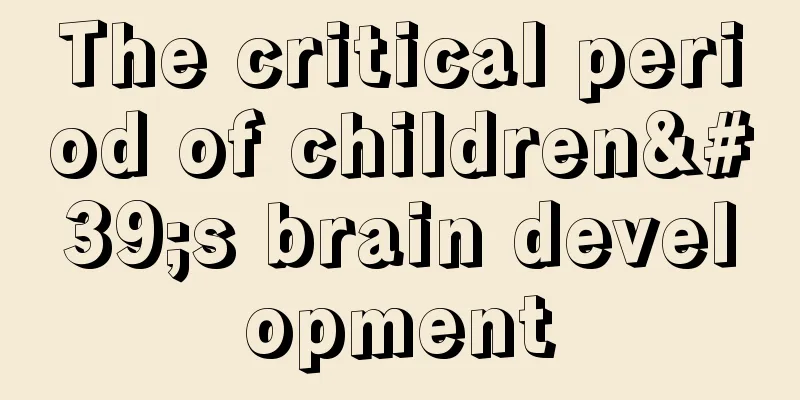What does willpower mean?

|
People often mention the term willpower. Willpower is something that cannot be seen or touched, but it has an important impact on a person's life. If a person has strong willpower, he can always succeed in his career. Those who have low willpower should not be discouraged. There are many ways to strengthen willpower in life, and you can exercise it more often. If you don’t know what willpower means, let’s learn it in detail below. What does willpower mean? Willpower is a concept in psychology. It refers to the quality of a person consciously determining a goal, controlling and adjusting his or her actions according to the goal, overcoming various difficulties, and thus achieving the goal. Royce puts it this way: “Willpower is generally understood in a sense to mean the whole mental life which guides every aspect of behavior.” When people make good use of this beneficial force, they develop determination. And if a person is determined, it means that willpower is at work. The obedience of a person's psychological functions or physical organs to his determination demonstrates the tremendous power of willpower. train: It seems that the various spiritual powers of human beings cannot be separated. When it comes to willpower training, it involves thinking training, memory training, and imagination training. From the perspective of this book, willpower is a self-directed spiritual force. In this case, as long as you do something with your heart, willpower will always play a role behind the scenes. Or we can say that living life seriously and doing things seriously is a way to exercise willpower. Willpower always works together with human feelings and knowledge, but this does not mean that human feelings and knowledge are equivalent to willpower, nor can we confuse desires and sense of right and wrong with willpower. A person can go against his willpower and allow his senses to control him, or he can mobilize his willpower and protect himself from the control of his emotions. The process by which willpower works is sometimes familiar to people, and sometimes it happens quietly in a secret way. But generally speaking, when a person is completely dominated by willpower, he or she will no longer feel the existence of forces such as desires, emotions, and senses. Willpower may take actions entirely based on moral and ethical standards; or it may completely put moral issues aside, ignore moral requirements, and take action based on some other factors. A person's willpower represents the way he lives or does things; the will guides himself and also commands other parts of the body. Willpower is not merely the power of determination to make up one's mind, nor is it merely the power of perception to understand, nor the power of imagination to conceive; it is all "self-directed spiritual power itself." Royce puts it this way: “Willpower is generally understood in a sense to mean the whole mental life which guides every aspect of behavior.” Wenqu Psychology Network introduces the following willpower training methods for everyone, you may want to try: 1. Be proactive Willpower, not to be confused with self-denial, is a tremendous force when applied toward positive goals. A businessman on the East Coast of the United States knew he drank too much, yet he had a stressful job and a few glasses of wine before meals seemed to help him relax. But alcohol and tiring work made him drowsy, so he often fell into a deep sleep as soon as he finished drinking. One day, the manager realized that he was drinking to drown his sorrows and wasting his time. So he decided to stop drinking and spend more time with his children. It was not easy at the beginning, and he often thought of the fragrant wine, but he reminded himself that what he did would gain something rather than lose something. Later facts proved that the more he cared about his family and children, the harder he worked. Proactive willpower can help you overcome laziness and focus on the future. When you encounter obstacles, imagine the joy you will feel after overcoming them; actively engage in the specific practice of achieving your goals, and you will be able to persevere. 2. Make up your mind James Pross, a psychology professor at the University of Rhode Island, divides the process of achieving a transformation into four steps: Resistance – unwillingness to change; Consider – weigh the pros and cons of the transition; Action – Develop the willpower to effect change; Persistence – Use willpower to maintain the transformation. Some people are "chronic decision makers" who know they should cut down on their drinking but are so indecisive that they fail to take action. To help you stay determined, set a deadline for your goals. Maggie Collins, a teacher in California, was concerned about how to slim down her overweight body. Later, she was elected as the chairman of a civic organization and decided to lose 6 kilograms. To this end, she bought clothes two sizes smaller than her size to wear at the annual meeting three months later. Thanks to his persistence, Collins finally got what he wanted. 3. Clear goals Professor Pross once studied a group of experimental subjects who planned to change their behavior starting from New Year's Day. The results showed that the most successful ones were those who had the most specific and clear goals. One of the men decided to be kind and treat his wife equally every day. Later, he actually did it. The other person just vaguely said that he would be nicer to his family, but within a few days he was back to his old ways and they were quarreling again. Don't say empty things like, "I plan to do more physical exercise," or, "I plan to read more books." Instead, be specific and clear - "Plan to walk for 45 minutes every morning" or "Plan to read for an hour on Monday, Wednesday and Friday evenings." Weighing the pros and cons If you are hesitant about physical exercise because you don't see any practical benefits, the desire alone will not make you willingly put on your running shoes. Professor Pross advises people who come to him for consultation to draw four boxes on a piece of paper to fill in short-term and long-term losses and gains. If you plan to quit smoking, you can fill in the short-term losses in the top two boxes: "I will feel very sad at first" and the short-term gains: "I can save some money"; fill in the long-term gains in the bottom two boxes: "My body will become healthier" and the long-term losses: "I will lose a way to relieve stress and boredom." With such careful comparison, it becomes easier to muster the willpower to quit smoking. |
<<: The nipples feel a little painful
>>: Taboos after rhinoplasty with prosthesis
Recommend
Will I definitely get cervical cancer if I'm infected with HPV? What are the symptoms of cervical cancer?
The occurrence of cervical cancer is closely rela...
Can I still have children after kidney cancer surgery
Many young kidney cancer patients are concerned a...
How can patients with bile duct cancer reduce the recurrence rate
Cholangiocarcinoma is a disease with a relatively...
What are the symptoms of late-stage glioma
Many young people lack knowledge about glioma and...
What is the cause of a big stomach
The stomach itself has the function of contractin...
What are the small black spots on the neck?
Many people will find that they have many small b...
Symptoms of acute cerebral hemorrhage, don't take it lightly
Cerebral hemorrhage, also known as cerebral hemor...
Doing one thing while urinating is most beneficial to the kidneys
Traditional Chinese medicine has many effective f...
Reasons for pain in the right shoulder blade joint
According to some clinical data, the number of yo...
What are the symptoms of disseminated intravascular coagulation
Blood diseases are the most difficult to treat, s...
Can chronic pharyngitis cause bad breath?
Bad breath is quite embarrassing, especially if i...
How many days does a three month old baby poop?
For a three-month-old baby, breastfeeding is the ...
What does cin2, a precancerous lesion of the cervix, mean? What are the risk factors for cervical cancer?
Cervical cancer is very common in our lives today...
Will patients with cirrhosis definitely develop liver cancer?
Liver cirrhosis is diffuse liver damage caused by...
How to remove bubble gum stuck on shoes
Bubble gum is quite common in life. Some people wi...









